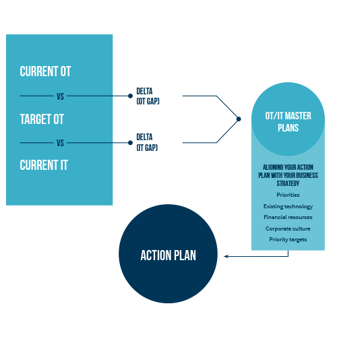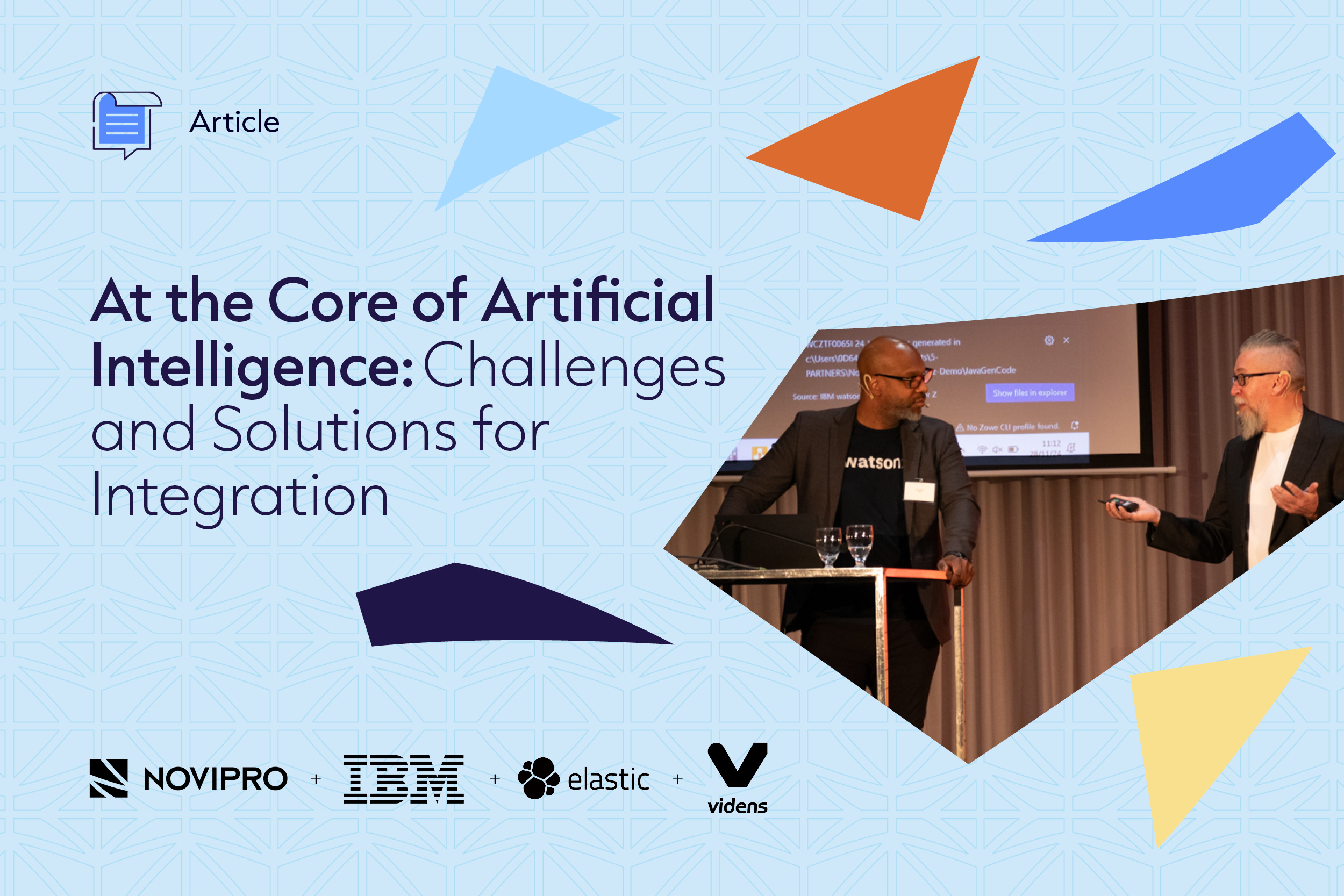It’s entirely possible to transition successfully to Industry 4.0 without unleashing chaos on your production floor or compromising your company’s finances. All you need is a clear action plan that is aligned with your company’s business needs. Here’s an explanation.
“When talking about connected factories, we immediately think of predictive technology and quality control. These are worthy but ambitious priorities, requiring a long-term commitment,” says Yves Paquette, co-founder, President and CEO of NOVIPRO. “You can start the shift to Industry 4.0 with a much simpler project, one that provides a rapid return on investment.”
But how do you know which initiatives to prioritize?
A document to inform decision-makers
Companies that want to add connectivity to their equipment should start by examining their needs. They should first order an Industry 4.0 audit to identify initiatives that are likely to lead to success. Next comes preparing an OT/IT master plan to determine their needs for new data exchange technologies and IT upgrades. Finally, using the OT/IT master plan for guidance, they should draft an action plan to help them choose the highest priority projects.
“At this stage, senior management will want to see a proposal with specific timeframes and dollar figures,” explains Pierre Tocci, IT transformation strategic advisor at NOVIPRO. “The action plan should categorize and rank projects according to their implementation risk, cost and anticipated returns. It should also include an assessment of how the change will impact the company. For example, will introducing new technology mean that employees will need to transferred or given special training? Will new hires be needed to fill skill gaps?”
Initially, senior management will use the action plan to determine what risks they’re prepared to take—or not—when making the switch to Industry 4.0. The document will help them find their comfort zone. As the transition progresses, they can refer back to the action plan to help them make informed decisions.
A roadmap for change
“Obviously, not all the initiatives will be implemented,” cautions Tocci. “What might have seemed doable at the beginning might prove too complex or costly, or lacking in real added value. Of course, unforeseen circumstances can also arise.”
These unforeseen circumstances can be external to the organization. For example, an American company might flood the market with a comparable service at a lower cost, or international tariffs can change. Or they might be internal: damage to the factory floor due its inability to withstand the vibration of new machinery, transmission protocols that are too difficult to standardize, resistance among employees to new procedures, etc.
“The idea behind the action plan is to identify the initiatives that are most likely to be successful,” explains Tocci. “However, every company has its own definition of success. One might prioritize a rapid return on investment, while another might prefer to minimize disruptions at the plant. Because the last thing you want is to interrupt production or cause bottlenecks.”
Slowly and surely on the way to 4.0
Any plan to transition to Industry 4.0 must leave room for future adjustments. The action plan should periodically be updated in light of new information. Most importantly, the action plan must always remain aligned with the company’s strategy.
“Never assume that the transition will be seamless,” concludes Pierre Tocci. “Start with an initial project that has a high chance of success, and learn from the mistakes that are made along the way. Then you can gradually diversify your efforts, extending them to the rest of the plant and all its employees.” This more measured approach will help ensure a smooth transition to Industry 4.0.
Read the next article from our 4.0 transformation Series : Industry 4.0 and artificial intelligence : a world of possibilities.









